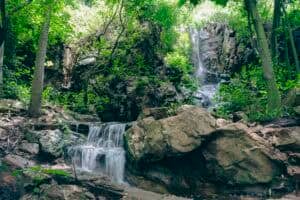The dirt traps will remove plastic and other waste from the river for gainful use through recycling and generate employment too.

The foul stench of rotting waste in the polluted and murky Jukskei River is being dubbed a disgraceful violation of the environmental rights of Extension 7 and Setswetla informal settlement residents.
They have to tolerate this condition in their sleep, over meals and when relaxing outside their homes in Johannesburg, Alex News reports.
The situation – which is said to have been ongoing for years – is expected to worsen as the summer heat intensifies.
This, despite residents’ approaches to the City and provincial and national government to make the area next to the river habitable.
Residents also link this to their desperation for housing, which leaves them in shacks perched precariously on the river bank.
Also, they accuse the City Council and national government of reneging in prioritising the cleaning of the river and rehabilitating the river banks after floods caused damage.
Councillor Adolph Marema said: “Letters have been written and the problem acknowledged by President Jacob Zuma, relevant ministers and the mayor, but to no avail.
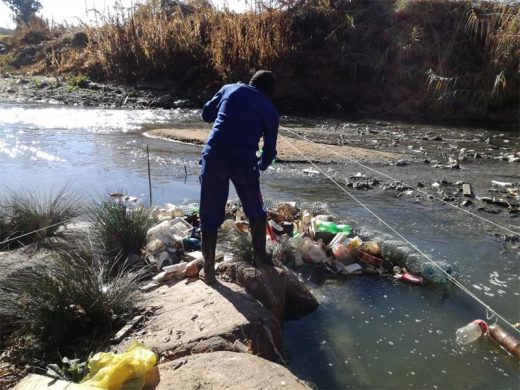
Dirt trap in action.
“A waterborne disease outbreak like cholera is imminent and will shame the authorities with each passing day of inaction. This as residents use the water for domestic purposes and the illegal dumping – possibly including hazardous material – signal a failure in bylaw implementation.”
Marema and other councillors are trying to rescue the situation with a small measure he hopes will propel urgency by higher authorities. This is through the Naniwa Foundation’s donation of dirt traps to remove plastic and other waste from the river for gainful use through recycling and employment generation.
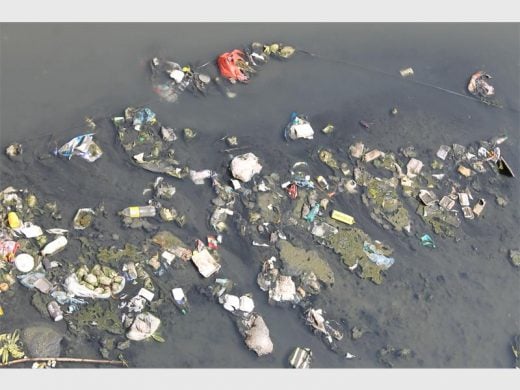
Shocking pollution in Jukskei river: Photo:Leseho Manala
READ MORE: Children play with dead infant in Jukskei River
Marema said he expects the relief to raise environmental health awareness among the residents, who he blamed for dumping their rubbish anywhere instead of at designated areas. He lambasted some residents who are said to sell partitioned riverfront land for dumping rubble and other waste from elsewhere.
It is alleged the suspects act fearlessly, leading to perceptions of their protection from prosecution by someone in authority.
Marema is irked by council’s failure to spend the R20 million allocated for the rehabilitation of flood damage and the enforcement of bylaws, and provincial government’s failure to erect the promised barricades along the river bank to stop construction of shacks and dumping.
“They will also save lives and loss of property.”
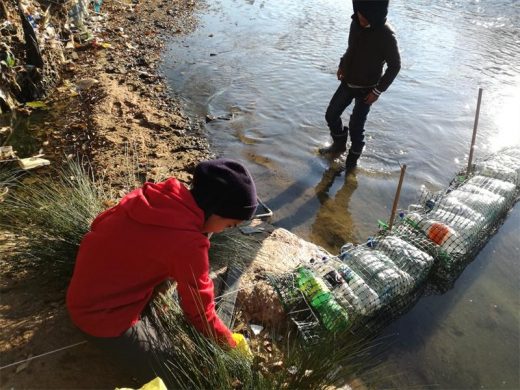
Installing the dirt trap.
He further lamented the region-based planning process, saying it limited residents’ participation and feeling of ownership and the desire to protect their own area’s development – hence their uncaring attitude about anything, including the pollution and dumping.
Joseph Mokhapi said the problem will influence the electorate’s choice of leadership in the 2019 national general elections. He predicted that without influx control to the area, more shacks will be built, resulting in more violence when authorities try to demolish them without being able to provide houses.
“Open spaces near posh neighbouring suburbs will also be occupied with more confrontations. Only strict border control and more housing development will solve this challenge,” he said.
The foundation’s Faaizah Mohomed and Yakob Mentor said the traps worked well elsewhere. “We hope the results will galvanise government support and rekindle residents’ love for their area,” said Mohammed.
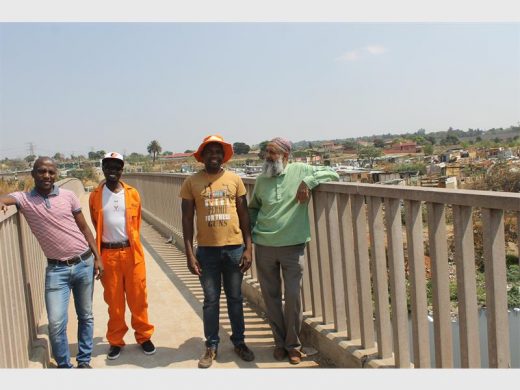
Details: Faaizah Mohomed 081 788 0353; Adolph Marema 079 617 1957.
READ MORE
– Caxton News Service






